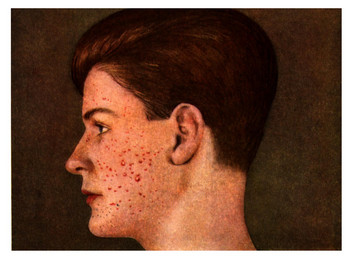How to Treat Boils
A boil, or skin abscess, is an infection within the skin that appears as a patch of tender redness. Boils progress into feeling firm yet tender to the touch, until the center fills with pus. This is a sign that white blood cells have travelled to the site of the boil to fight the infection.
The infection of oil ducts during acne outbreaks, inflammation of hair follicles in the crease of the buttocks, inflammation of the sweat glands, and breaks or cuts anywhere on the skin that have been infected with Staphylococcus bacterium can cause boils. Understanding how to treat boils correctly can prevent spreading the infection and permanent scarring
Here are some home treatments for a boil:
- Treat the boil as early in the infection as possible to eliminate further infection and other complications.
- The application of heat is the primary method of treatment for boils, either by soaking the infected area in hot water or applying hot packs to the site of the boil. Heat works to eliminate boils by increasing the body’s circulation, allowing the blood supply to quickly bring infection-fighting white cells to the site of the boil. This arrests further development of the infection while the body’s own antibodies get to work.
-

How to Treat Boils
Boils should never be picked, poked at, lanced or otherwise opened while the boil is hard and firm to the touch. Once the boil has softened and a noticeable head of pus has formed, they can be successfully drained in order to obtain quick pain relief. Sometimes immersion in hot water will cause the boil to drain itself. Boils should only be drained or lanced by a medical professional rather than the person experiencing the boil. Many large boils contain several pockets of pus which must be carefully drained and an experienced professional will minimize the risk of increasing the infection or permanently scarring the skin surrounding the boil.
- Taking antibiotics is a safe course of action to deal with any infection present, but antibiotics must be prescribed by a dermatologist or other healthcare practitioner. Usually antibiotics alone cannot cure a boil, but they do go hand in hand with having the boil professionally drained.
- Using an antibacterial soap on the area where the boil has developed is effective at removing bacteria from the surface of the skin and preventing future boils. Gently scrubbing the skin with a loofah brush while showering is an effective treatment for boils associated with acne, as this can help stimulate oil ducts and remove dirt and debris that may be clogging them.
- When treating boils, keep the pus from the boil contained within that area, as contagion of the pus to areas of the skin elsewhere on the body will cause boils to form there as well.
- Having a healthy diet goes a long way in treating boils and preventing their reccurance. A healthy diet includes plenty of fresh fruits and vegetables, plenty of liquids, and infection-fighting foods such as garlic. These foods strengthen the body’s immune system while a boil is healing.
Individuals with any kind of condition that weakens the immune system should seem immediate professional healthcare. Any of the following can weaken your immune system: diabetes, HIV, cancer, kidney disease, other chronic illnesses, and some medications.An untreated boil can be life-threatening for those with compromised immune systems.
Perhaps the best treatment for boils is prevention. Eating a healthy diet and washing with bacterial soap will go a long way toward preventing boils.
For more tips about how to treat boils, visit:
